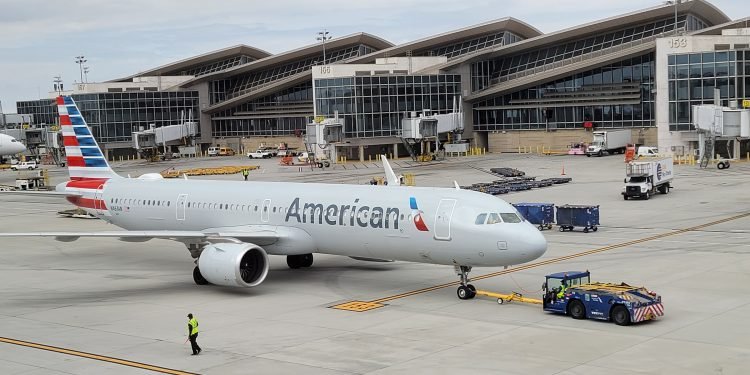American Airlines CEO Justified in Not Providing Complimentary Employee Transportation
The CEO of American Airlines has sound reasoning for abstaining from offering complimentary transportation to employees.

In the aftermath of American Airlines' second quarter earnings call, an internal "State Of The Airline" Q&A session took place, where an employee raised the question of incorporating complimentary employee travel into recognition programs. The proposal potentially entailed providing around 80 confirmed tickets per year, a consideration that gains significance given the airline's daily passenger volume of over half a million.
Surprisingly, CEO Robert Isom explained his reluctance towards utilizing free travel as a compensatory measure for employees, despite his leadership role within the airline industry. Notably, in 2017, American Airlines received the prestigious title of World's Airline of the Year and responded with a gesture of appreciation - presenting each employee with two complimentary passes for global travel. However, Isom, who was then the airline's President (with Doug Parker as Chairman and CEO), indicated a shift in his stance.
Isom's perspective hinges on the principle of matching compensation with individual preferences. He distinguishes between valuing tangible benefits and monetary rewards, taking into account factors such as taxation and perceived value. For instance, he highlights the prevalent practice of offering health insurance as a non-taxable employment benefit in the US due to group purchasing dynamics and economic considerations.
To align with the objective of providing cost-effective benefits that align with employee and consumer valuations, American Airlines could explore the option of awarding AAdvantage miles for travel. While the cost to the airline remains relatively low, the perceived worth for travelers could significantly exceed the expenditure.
Isom's reasoning draws from past experiences, exemplified by an employee's proposal for company-funded gym memberships for all staff. He reframes the query to emphasize the appeal of a general salary increase, challenging the notion of dictating spending choices. Isom emphasizes that while people are drawn to complimentary perks, the true cost and value should be considered. Ultimately, Isom's perspective underscores the complexity of balancing personal preferences and organizational decisions, reflecting a prudent approach to compensation strategy.

 chandni
chandni 



